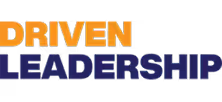Executive Leadership Courses in Los Angeles, CA


Leadership Training Executive Leadership Courses in Los Angeles, CA
Executives in Los Angeles need leadership training that matches the pace, complexity, and public visibility of the region. Our executive leadership courses in Los Angeles, CA focus on strategy, governance, and high-stakes decision-making—designed to move senior leaders from competent operators to decisive, board-ready executives. These courses combine immersive, practice-driven learning with coaching and measurement so leaders can apply new skills immediately to company strategy, crisis scenarios, and stakeholder governance.
Common leadership issues in Los Angeles organizations
Leaders across LA face particular challenges shaped by industry mix, scale, and public scrutiny. Common issues we address include:
- High-stakes public scrutiny and reputation risk, especially in entertainment, tech, and higher education.
- Complex stakeholder ecosystems: boards, investors, partners, unions, and regulatory agencies.
- Rapid growth and scaling decisions for startups and scaleups in the region.
- Cross-cultural and multilingual workforce dynamics requiring inclusive leadership.
- Remote and hybrid team management complicated by long commutes and distributed teams across the region.
- Governance gaps: unclear decision rights, weak board-executive alignment, and insufficient risk frameworks.
Who these executive leadership courses serve
- CEOs, COOs, and divisional presidents preparing for board-level responsibilities.
- New C-suite leaders transitioning from operational roles to strategic leadership.
- Board members and senior executives responsible for governance and high-stakes decisions.
- Senior leaders in entertainment, media, tech, nonprofit, and higher education in Los Angeles who must balance public exposure and complex stakeholder demands.
Course overview: modules and what you’ll learn
Each executive leadership course is modular and practical, emphasizing immediate application and measurable outcomes.
- Strategic Leadership and Systems Thinking
- Frame long-term strategy, translate vision into measurable objectives, and align organization structures to strategic priorities.
- Governance and Board Relations
- Clarify roles between boards and executives, strengthen board reporting, and develop governance practices that withstand scrutiny.
- High-Stakes Decision Making and Risk Management
- Apply decision frameworks to ambiguous, time-sensitive situations and build protocols for escalation and contingency.
- Leading Culture and Change in Diverse Environments
- Lead inclusive teams, reduce friction across units, and sustain culture through growth or restructure.
- Financial Acumen for Leaders
- Interpret financial signals, align resource allocation to strategy, and communicate tradeoffs to investors and boards.
- Stakeholder Communication and Crisis Response
- Practice reputation management, media-facing communication, and internal alignment during crises.
- Personal Mastery and Executive Presence
- Strengthen self-awareness, resilience, executive presence, and the ability to influence across stakeholders.
Learning methods: experiential, peer-driven, and tailored to Los Angeles
- Peer learning cohorts: Small, cross-industry cohorts let LA leaders exchange real-world scenarios—useful given the region’s industry overlap between entertainment, tech, and nonprofits.
- Simulations and war-gaming: Realistic exercises (board reviews, M&A negotiation, crisis PR) recreate LA-specific high-pressure moments so leaders can rehearse decisions safely.
- Action learning projects: Participants bring live strategic problems from their organizations and work in teams to implement solutions, delivering immediate business value.
- 360 feedback and assessments: Baseline and post-program 360s, plus decision-making and cognitive-style inventories, to pinpoint development priorities.
- Blended delivery: Short in-person intensives (scheduled to accommodate LA schedules) combined with Summit-style online modules for continuous learning.
- Dedicated coaching support: One-on-one executive coaching and group coaching sessions help translate workshop learnings into behavior change and governance practices.
How programs drive measurable executive effectiveness
Executive development should deliver observable changes, not just insights. Typical outcomes from these courses include:
- Faster, more consistent decision cycles and improved quality under pressure.
- Clearer governance frameworks and stronger board-executive alignment.
- Increased team engagement and reduced decision-related turnover.
- Improved stakeholder confidence demonstrated through investor and board feedback.Measurement methods include pre/post 360s, decision outcome tracking, governance scorecards, project ROI dashboards, and follow-up leader and board surveys.
Typical program process
- Intake and assessment: Organizational context, role clarity, and leadership assessments.
- Customized curriculum design: Modules prioritized for local industry and organizational needs.
- Cohort sessions and simulations: Intensive in-person or hybrid residencies.
- Action learning implementation: Live projects executed with coaching and peer feedback.
- Coaching and governance integration: One-on-one coaching and board advisory sessions to embed practice.
- Measurement and sustainment: Post-program assessment, performance metrics, and ongoing peer support.
Why Los Angeles matters for executive leadership training
Los Angeles leaders operate in a high-visibility, fast-moving environment where decisions affect public reputation, creative partnerships, and complex regulatory landscapes. The region’s mix of entertainment, technology startups, higher education, and large nonprofits demands leaders who can:
- Navigate media and public-facing risks with composure.
- Build bridges across creative and technical cultures.
- Scale organizations while preserving culture and governance.
- Lead inclusively across diverse communities and stakeholders.
Programs tailored for Los Angeles focus on these realities: intensive scenario practice, stakeholder communication for a public market, and governance frameworks that reflect California’s regulatory and diversity expectations.
Sustaining results: ongoing development and best practices
Long-term impact requires follow-up and integration into daily practice. Effective sustainment strategies include:
- Regular executive coaching touchpoints and leadership refreshers.
- Alumni peer advisory groups for ongoing case review and accountability.
- Short, focused microlearning modules to reinforce specific skills.
- Embedding leadership competencies into performance cycles and governance reviews.
Strong leadership reduces risk, accelerates strategic outcomes, and creates resilient teams—especially in a market as dynamic as Los Angeles. These executive leadership courses provide the tools, rehearsal, and coach support leaders need to make better decisions, lead with credibility, and govern with clarity.

